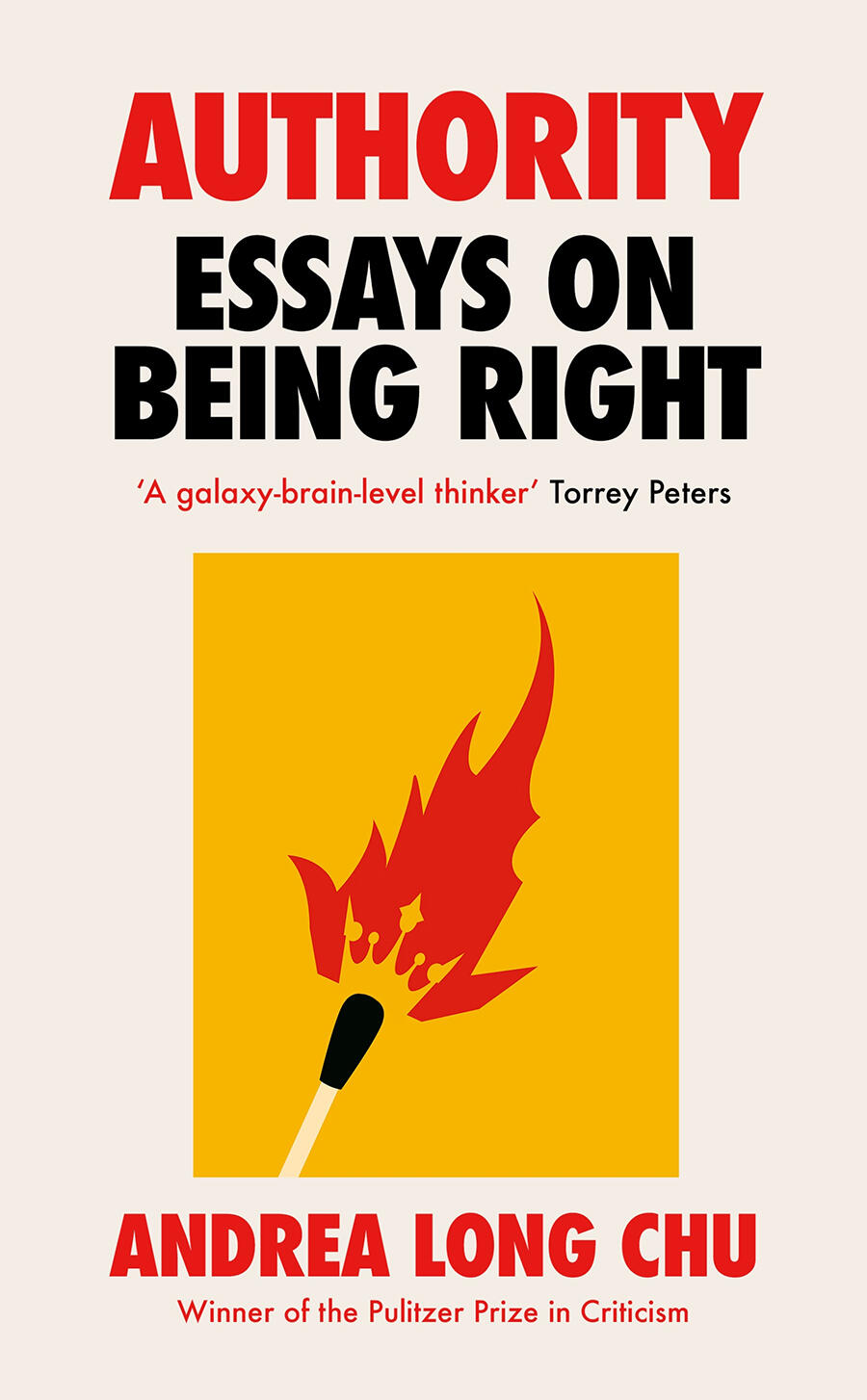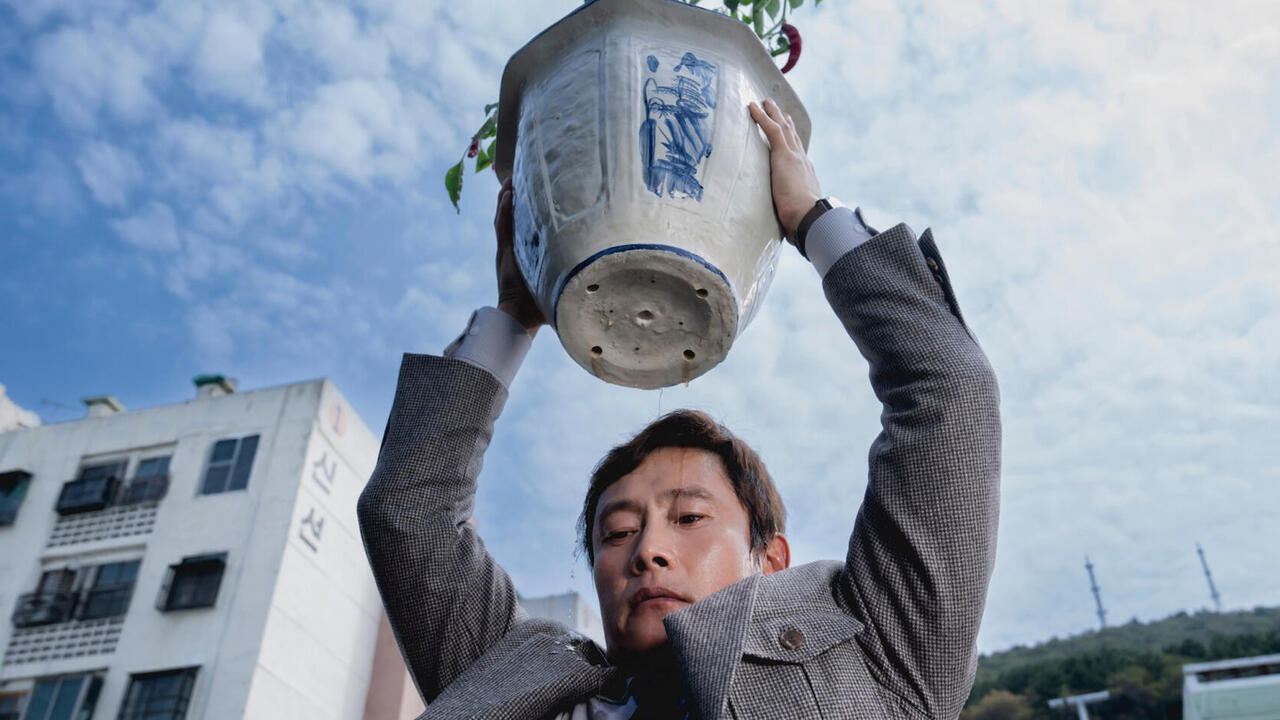Authority: The Biting Criticism of Andrea Long Chu
In her latest book, the celebrated critic dissects culture, high and low – with wit, cool intellect and the flair of important gossip
In her latest book, the celebrated critic dissects culture, high and low – with wit, cool intellect and the flair of important gossip

Does Andrea Long Chu’s compendium of new and previously unpublished critical work establish her authority in the field, or simply confirm what we already know? In 2023, Andrea Long Chu was awarded the Pulitzer Prize for Criticism – specifically for her book reviews that ‘scrutinize authors as well as their works’. Now, the title of her new release, Authority (2025), offers a knowing nod to the perception such an accolade might invite.
The book reveals Chu as a splutteringly funny writer, confident in her taste and deeply knowledgeable about the genres she explores. Across its chapters, her astute and witty analysis of individual works is elevated by the collection as a whole, which brings together critiques of literature, pop culture and theory. Authority features two new essays, ‘Criticism in Crisis’ and ‘Authority’, in which criticism itself becomes the object of study. This dedication to criticism – as genre, object and process – is playfully examined by Chu, who blurs the boundaries of the critical voice as rigorous research dovetails with personal recollection.

The opening chapter, ‘Criticism in Crisis’, sets a scene we still inhabit. We remain in what Chu terms the ‘next bloody phase in Israel’s long campaign of occupation and genocide in Palestine’. Since these words were written in 2024, many more have died. How does one square a crisis so vast it becomes incomprehensible with the role of the critic? Chu poses this dilemma at the outset of her study, before going on to demonstrate that every generation of writers believes that their era marks a unique decline in the critical tradition, with examples illustrating critics’ cyclical fear of their own demise spanning more than 250 years and observes that the current longing for a past critical landscape is nothing more than nostalgia for a mythical bygone era.
The book spans a cornucopia of matter, including personal reflections and experiences. In ‘Pink!’, Chu articulates the experience of being trans to an imagined cisgender female audience: ‘I don’t want what you have; I want the way you don’t have it.’ Here, she complicates the typical understanding of the category of ‘woman’ by considering how her desire and proximity to womanhood are shaped not by the attainment of particular features, but by a relationship to loss.
The rigour of Chu’s research and knowledge at times reads like important gossip
Throughout the collection, genre is a site of particular interest. In ‘Girl Eat Girl’, for example, Chu observes how the television series Yellowjackets (2022–ongoing) forges two timelines to create both ‘a survival drama’ and ‘a suburban thriller’, demonstrating how the interplay of formal construction and genre animates narrative, character, time and trauma. Describing how the series introduces the theme of cannibalism, Chu reads this disturbing premise as forming ‘an invisible spine that connects the series’ two arcs like ribs, curving out and around without touching’ – an artful metaphorical conjuring of the imagery from the series to analyse its structure.
‘The Opera Ghost’, Chu’s study of The Phantom of the Opera (1986), similarly reads the development and musical-narrative content of the production alongside its commentary on opera, interwoven with sketches from composer Andrew Lloyd Webber’s childhood and musical influences, and informative explorations of opera and musical theatre history. By situating The Phantom of the Opera within this map of influences and motivations, Chu frames her critique with a rigorous focus on how generic conventions are contorted by the desires of the creator.

Elsewhere, there is a probing of recent books, including an analysis of the work of Maggie Nelson, investigating how her political declarations are at times undermined by an egoic longing. While Nelson critiques the way certain artworks have been charged with replicating physical harm, Chu suggests that Nelson does not fully account for how her position conflates artistic censorship with a form of violence. Chu’s analysis is both biting and generous, as she navigates the debate with a commitment to understanding Nelson’s intent. In doing so, Chu’s exploration of the author’s position is interspersed with philosophical inquiries into the operation of language itself. In a later chapter – tellingly titled ‘Nobody Wants It’ – she offers a less patient review of Joey Soloway’s memoir, She Wants It: Desire, Power, and Toppling the Patriarchy (2019), embarking on a wittily exasperated trudge through what she terms a self-congratulatory ‘sub-airport’ book.
At times, Chu’s more informal voice interrupts her formal analysis to ensure the reader is on the same page. So, let’s make sure we’re on the same page here too: she’s very good. Her research elegantly folds context and detail into her personal evaluations. In doing so, we’re persuasively aligned with her assessment of how a novel or television show precisely engages with, or subverts, established conventions. The effect is that we are given details of the historical emergence and characteristics of the generic model that the subject under review falls within. In turn, the specific ways a piece does or does not conform to this set of pre-existing conventions are teased out.

With this attention to detail and context, Chu often infers an author or director’s personal voice and experience as it weaves through their work. This discerning impulse offers a depth to Chu’s reviews. The result is that the rigour of her research and knowledge at times reads like important gossip, revealing a secret the creator has accidentally let slip, not thinking that the little nugget of themselves they put to the page, screen or stage would be detected. In this way, Chu’s writing shifts through the different registers to illuminate how a text’s singularity is always in dialogue with its formal history. In doing so, Chu frames her critical role as one that takes seriously the range of details offered to us in a cultural artefact and the specific time, place and form of its creation. The author’s voice that sits within a narrative has a past, an ego and desires, which offer new contours to their work if we look, listen or read as closely, as Chu invites us to. It is in this combination that her authority takes shape.
Andrea Long Chu’s Authority will be released in the UK on 7 August 2025.
Main image: Andrea Long Chu. Courtesy and photograph: Beowulf Sheehan
























